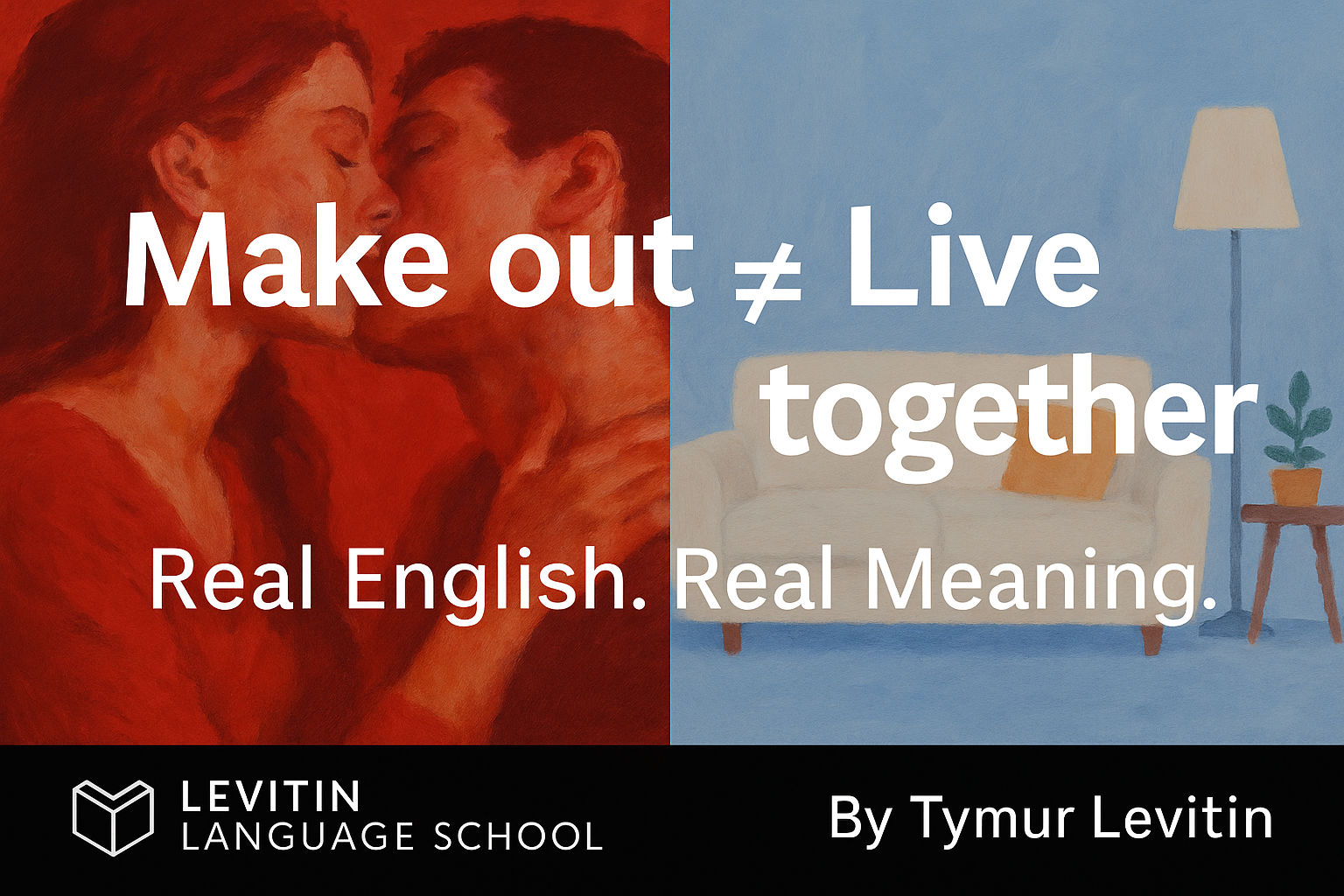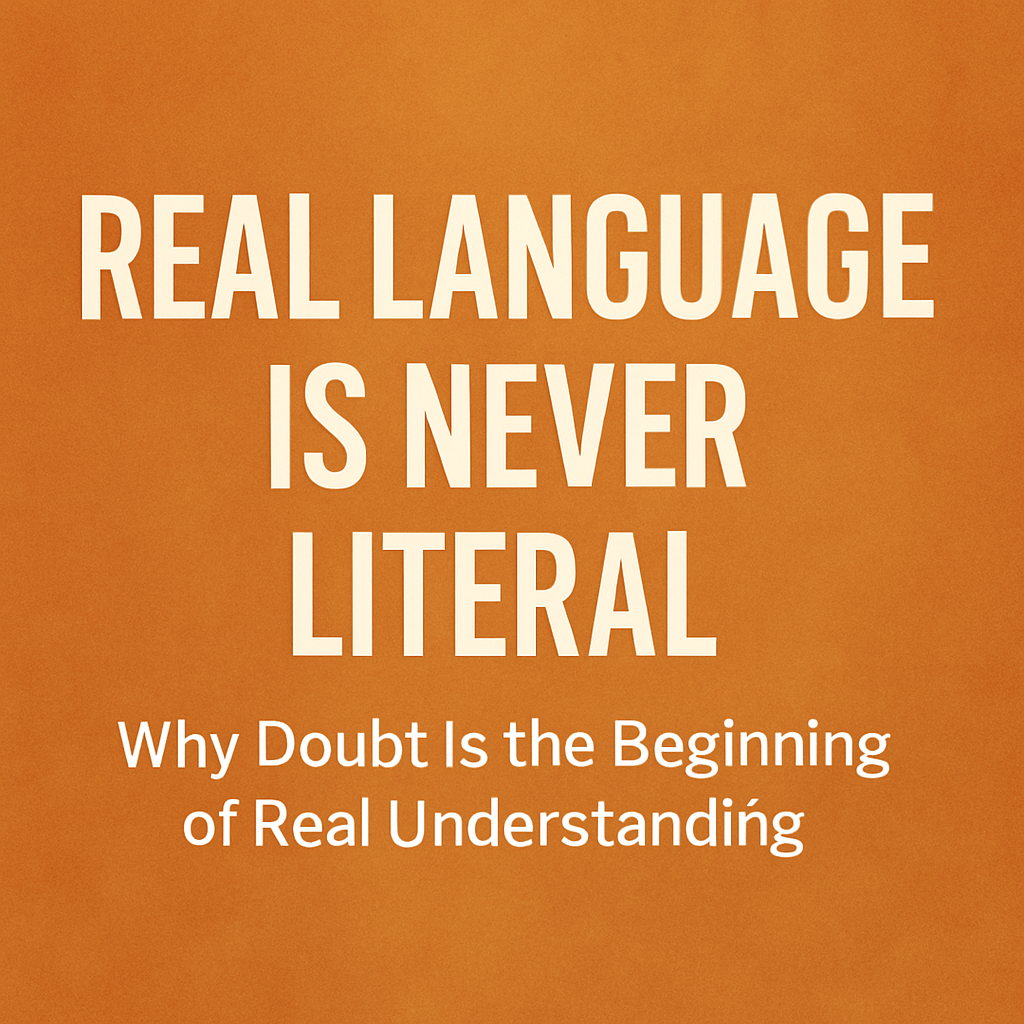Author: Tymur Levitin — Founder and Director of Levitin Language School / Start Language School by Tymur Levitin
📝 “Language is more than words — it reveals how we think and feel.”
Elija su idioma
➡️ https://levitinlanguageschool.com/#languages
📖 German version of this article:
https://timurlevitin.blogspot.com/2025/08/was-bedeutet-eigentlich-rumknutschen_0482462661.html
Why This Topic Matters
Many learners of German use expressions like “zusammen sein,” “knutschen,” or “eine Affäre haben” without fully understanding their actual meaning or emotional tone. In German — as in English — there are clear distinctions between kissing, sex, romantic relationships, and cohabitation.
Understanding those distinctions helps you avoid confusion and express yourself clearly, especially when talking about personal or intimate topics.
Let’s Start with “Rumknutschen”
“Rumknutschen” means: to kiss passionately, to make out, to engage in physical affection — without necessarily being in a relationship.
📌 Examples:
- “They spent the whole night rumknutschen.”
- “You often see people rumknutschen in clubs without even knowing each other.”
🗣️ Style: informal, youthful
⚠️ Note: Not the same as dating or living together.
Overview: Meaning, Style, and Use
1. rumknutschen
Meaning: passionate kissing
Register: informal
Relationship? Not necessarily
Living together? No
2. rummachen
Meaning: making out, physical touch / petting
Register: informal, sometimes rough
Relationship? Possibly
Living together? No
3. mit jemandem schlafen
Meaning: to sleep with someone / have sex
Register: neutral
Relationship? Not required
Living together? No
4. daten / sich verabreden
Meaning: to go on dates / meet romantically
Register: neutral / modern
Relationship? Possibly developing
Living together? No
5. zusammen sein
Meaning: to be a couple / in a relationship
Register: neutral
Relationship? Yes
Living together? Possibly
6. zusammenleben
Meaning: to live together
Register: neutral
Relationship? Often yes
Living together? Yes
7. zusammenziehen
Meaning: to move in together
Register: informal / neutral
Relationship? Yes
Living together? Yes
8. eine Affäre haben
Meaning: to have an affair
Register: formal / delicate
Relationship? Yes, but hidden
Living together? No
Translation Table (German – English – Russian – Ukrainian – Spanish)
| Alemán | Inglés | Ruso | Ucraniano | Español |
|---|---|---|---|---|
| rumknutschen | make out | страстно целоваться | пристрасно цілуватися | besarse apasionadamente |
| rummachen | fool around / petting | ласкаться, щупаться (разг.) | пестити, ластитися (розм.) | toquetearse (coloquial) |
| mit jdm. schlafen | sleep with someone | переспать с кем-то | переспати з кимось | acostarse con alguien |
| daten / verabreden | date / go out | встречаться | зустрічатися | salir con alguien |
| zusammen sein | be in a relationship | быть в отношениях | бути у стосунках | estar en una relación |
| zusammenleben | live together | жить вместе | жити разом | vivir juntos |
| zusammenziehen | move in together | съехаться | з’їхатися | irse a vivir juntos |
| eine Affäre haben | have an affair | иметь интрижку | мати інтрижку | tener una aventura |
Real-Life Examples
- 🎬 “They were rummachen behind the school.”
- 🎙️ “We live together, but we’re not married.”
- 📖 “She’s having an affair with her boss.”
These are real phrases used in daily life, books, TV shows, and songs — and they carry strong emotional and social signals.
Cultural Notes
German offers many ways to express love, closeness, or sexuality — but most of them are strongly marked by stylistic tone:
- Teenagers say “rummachen” or “knutschen”
- Adults prefer “eine Beziehung führen” or “zusammenleben”
- The media uses phrases like “Affäre,” “Romanze,” or “Bettgeschichte”
Using the right expression shows not only your grammar — but your sense of how people really speak.
Final Thoughts from Tymur Levitin
Many learners say “Wir sind zusammen” and think it means everything: love, sex, cohabitation. But in real German, each idea has its own expression.
At Levitin Language School, we teach more than vocabulary — we teach nuance, communication, and cultural awareness.
Because language is never just about words.
🔗 Read more from the Author’s Column:
https://levitinlanguageschool.com/blog/
📎 About the author:
https://levitinlanguageschool.com/teachers/tymur-levitin/
🌐 US site:
https://languagelearnings.com
© Tymur Levitin — Founder, Director, Senior Teacher and Translator
Levitin Language School / Start Language School by Tymur Levitin
🗂️ Author’s Column — Real German, Real Meaning






















